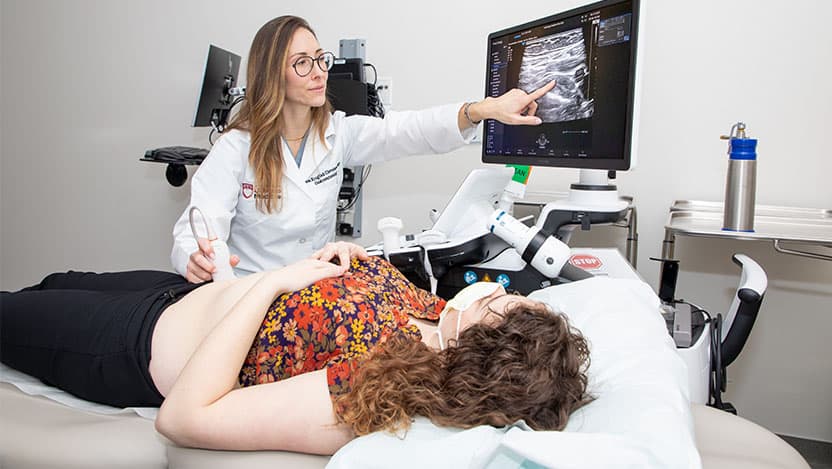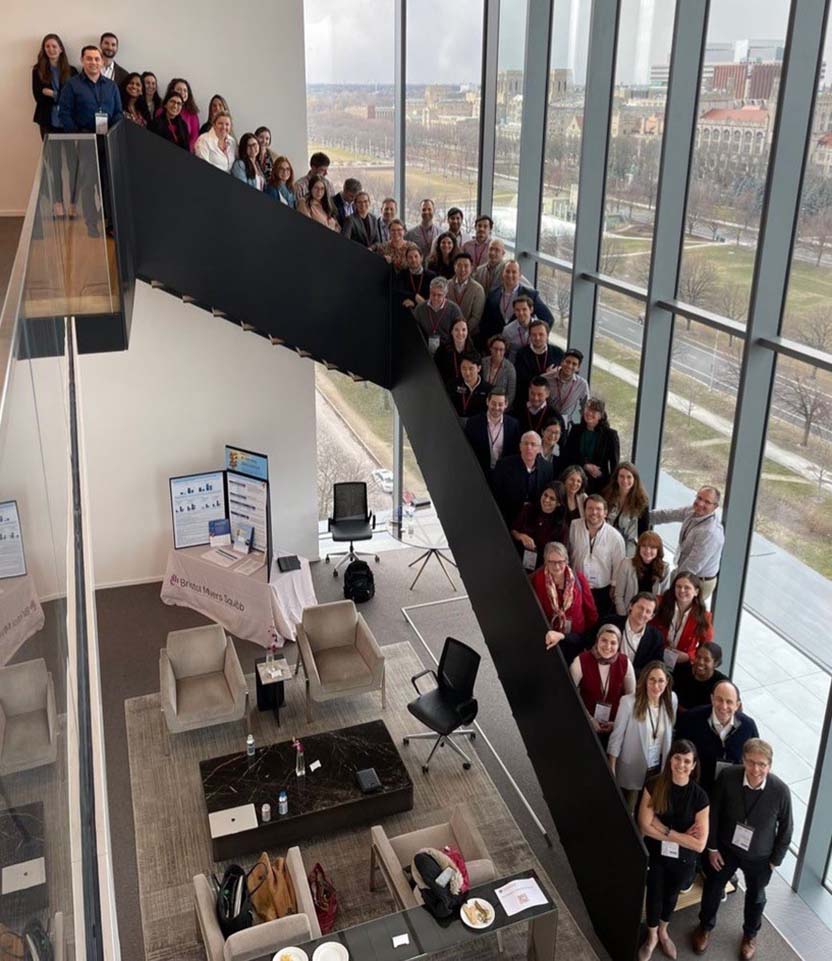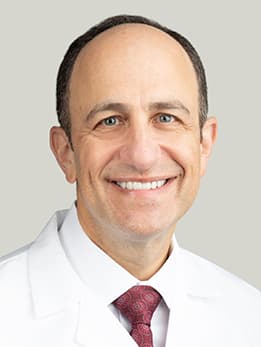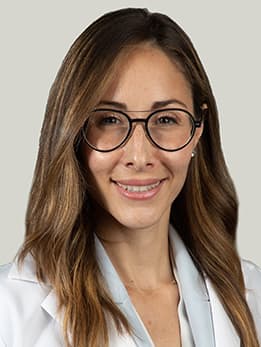UChicago Medicine trains physicians on ‘game-changing’ intestinal ultrasound

A select group of gastroenterologists from around the world will gather at the University of Chicago Medicine March 16-18 for demonstrations and training on how to perform intestinal ultrasound (IUS). The groundbreaking procedure provides a fast, real-time, noninvasive look at what’s happening in the intestines for a variety of conditions, including ulcerative colitis and Crohn’s disease.
UChicago Medicine is the second hospital in the country to offer intestinal ultrasounds to its Inflammatory Bowel Disease (IBD) patients who would otherwise need colonoscopies or other tests and procedures to assess inflammation and monitor treatments.
Only a handful of doctors nationwide have been trained to perform and interpret IUS. Training was not available for American doctors until 2022, said gastroenterologist International Bowel Ultrasound Group, is made possible by a $1.7 million grant from the Leona M. and Harry B. Helmsley Charitable Trust.
Just 30 IBD physicians from a pool of 120 applicants were chosen to attend the three days of presentations, videos, and hands-on sessions with actual patients.

Krugliak Cleveland and
Dr. Rubin specializes in the treatment of digestive diseases. His expertise includes inflammatory bowel diseases (Crohn’s disease and ulcerative colitis) and high-risk cancer syndromes.
Dr. Krugliak Cleveland specializes in gastroenterology and serves as Director of the Intestinal Ultrasound Program at UChicago Medicine.
David T. Rubin, MD

Noa Krugliak Cleveland, MD
